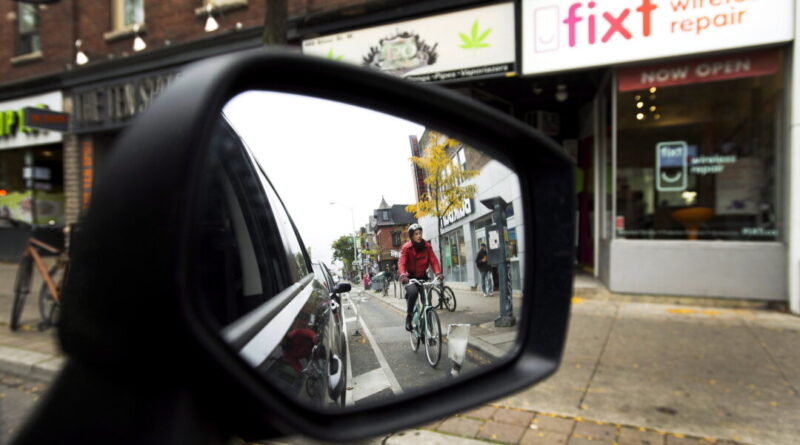Ontario Government Approves Legislation Restricting Bike Lane Expansion
Ontario has recently approved a law mandating municipal approval for the installation of bike lanes on major roads, potentially resulting in the removal of existing lanes in Toronto.
The bill was quickly passed and received royal assent on Nov. 25 with a 66-27 vote in its favor after the third reading.
Premier Doug Ford has consistently advocated for the removal of bike lanes to ease congestion on Toronto roads.
The province is concentrating on optimizing traffic flow on select roads to alleviate gridlock, as Ford mentioned in a press conference on Nov. 25.
“Three or four roads” are the focus of this effort, with collaborative efforts between Ontario and Toronto Mayor Olivia Chow.
“She believes the Bloor Street West lanes should be removed, as the previous mayor has acknowledged a mistake,” Ford stated.
“This is not about opposing cyclists; they can utilize secondary roads. One percent of the population shouldn’t monopolize 50 percent of the roads.”
No Lawsuits
The legislation has seen some modifications since its introduction, notably an amendment introduced last week to prevent lawsuits stemming from bike lane removal.
Sarkaria emphasized the importance of cyclists using secondary roads for safety.
“We’ve got to get this city moving,” he said. “It’s about making sure that everyone is safe on the roads.”
While many cycling advocates oppose the removal of bike lanes, a protest outside Queens Park was organized by Fight for Bikes, a group founded by two University of Toronto students.
The legislation also includes provisions for expediting the construction of priority highway projects like Highway 413 and the Bradford Bypass.
Highway 413 will link Highway 400 to the Highway 401/407 express toll route interchange area, spanning four to six lanes across the York, Peel, and Halton regions.
Work on the Bradford Bypass, connecting Highway 400 and Highway 404 through the York Region, has already commenced. Additionally, plans to extend Highway 413 are scheduled to start in 2025.



